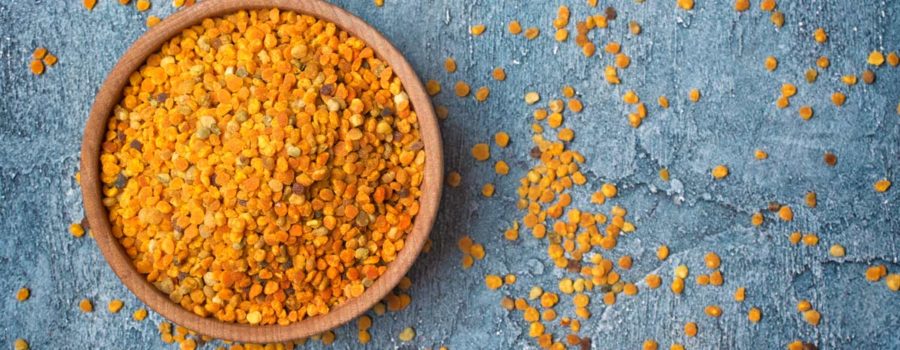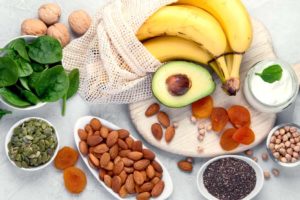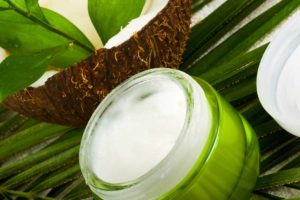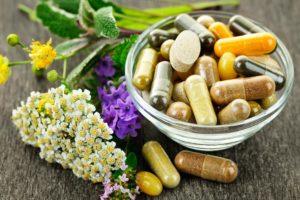Is Bee Pollen Good for You? What are its Benefits?
Pollen and bee pollen are two different things. Male pollen is found in flowering plants and is necessary for fertilizing the plant for reproduction. Worker bees produce pollen, nectar, enzymes, honey, wax, and bee secretions in balls or pellets. These ingredients serve as the primary food for young bees.
A complete food, bee pollen contains almost all nutrients essential to human health.
- Various amino acids and proteins
- Various antioxidants
- Fatty acids and fats
- Minerals and vitamins
- Sugars
- Bio enzymes
The most up-to-date technology for testing bee pollen composition cannot allow bees to survive when given synthetic bee pollen, suggesting a component to bee pollen that we are unaware of.
In ancient Greece, bee pollen was used for medical purposes over 2500 years ago. Chinese traditional medicine also made use of bee pollen. The presence of bee pollen appears in Egyptian and Native American folklore.
Pollen from bees has been studied for its health benefits
Pollen has many nutritional benefits as a supplement, including relief from allergy symptoms, correcting dietary deficiencies, reducing inflammation, and promoting weight loss.
Getting in shape & maintaining a healthy weight
Despite the lack of detailed weight effects research, some studies have supported its use for malnutrition.
Bee pollen supplementation prevented and reversed malnutrition in rats compared to eating more food alone. American diets are deficient in nutrients, which leads to nutrient deficiency in the body. Bee pollen can help.
Bee pollen also has many other benefits.
Bee Pollen is an anti-inflammatory substance
Many health issues are caused by inflammation. The most affordable way to reverse and reduce diseases is to increase antioxidant activity (through diet and supplementation). Bee pollen can prevent and treat diseases in addition to fighting inflammation. There is evidence that bee pollen has similar anti-free radical properties as vitamin E. It is also known to help with heart problems, diabetes, and cancer.
Additionally, researchers determined that mixing honey with bee pollen dramatically reduced inflammation in mice suffering from liver damage from taking acetaminophen. Since honey alone failed to have the same effect, bee pollen must possess specific (and significant!) anti-inflammatory properties.
The swelling caused by inflammation can stimulate nerves and cause pain. Bee pollen could also alleviate pain. In addition, the pollen from bees helps to ease burn pain and speed healing.
The antimicrobial properties of bee pollen
Bee products are known to possess antibacterial and antimicrobial properties. The anti-infective properties of raw honey make it ideal for wound treatment. Bee pollen also has antimicrobial properties. In a study involving six commercially available bee pollen products, all had antimicrobial properties. Furthermore, bee pollen showed anti-mutagenic (counteracts genetic mutation), antioxidant, and anti-inflammatory properties.
Anti-Cancer Potential
Bee pollen may have anti-cancer benefits. A study looked at mice who developed tumors. Without bee pollen, tumors died sooner than expected. However, some animals given bee pollen did not develop tumors within the anticipated timeframe, and others no longer had tumors.
There is, however, a need for more research to understand how bee pollen might benefit cancer patients.
Allergic reactions can be reduced
Honey from local farms my help with seasonal allergies because it exposes the immune system to local pollen. Pollen from bees is another alternative for allergies. However, bee pollen can inhibit mast cells from activating, creating allergic responses.
Promotes healthy hormones
Bee pollen supports hormone health in an unexpected way. Researchers found that bee pollen improved ovarian function in rats. In addition, a higher intake of bee pollen caused rats to produce more steroid hormones, such as progesterone.
According to a study published in the journal Andrologia, consuming chrysin (an antioxidant in bee pollen) can boost male fertility.
Menopause symptoms can also be relieved by bee pollen. The consumption of bee pollen or honey by women taking anti-hormonal medicines reduced menopausal symptoms.
Here’s how you can consume bee pollen
It is such wonderful food and contains so many beneficial compounds (some of which are yet to be found)! No wonder it has so many uses.
Nutritional supplement
Bee pollen comes in various dosages, but starting with 1-2 teaspoons is good. Then, add it to hot water or food or eat it raw.
Topically
It is also possible to use bee pollen topically to treat wounds. Due to its antimicrobial properties, it promotes healing and prevents infection. Topical use of bee pollen includes:
- Healing wounds
- Symptoms of skin irritation
- Rashes (such as eczema)
Can bee pollen be eaten?
The majority of people do not experience any side effects when consuming bee pollen. Bee pollen should not be consumed by expecting or nursing mothers. The uterus may be stimulated by bee pollen. The use of bee pollen is not recommended for people who are allergic to it (or pollen in general). Ask your healthcare professional if you’re unsure.
Where can I get bee pollen?
Bee pollen needs to come from sources that sustainably harvest the pollen and care for the bees. Getting to know a local beekeeper will help you to understand (or demonstrate) harvest practices better. Bees respond better to forage in the vicinity of their hives, for instance.
This little superfood can do it all – help with weight loss, reduce inflammation, and even fight cancer. If you’ve ever used bee pollen before or have any tips on where to find quality products, please share in the comments below. We can all learn from each other!






Leave a Reply
Your email is safe with us.